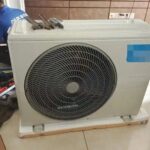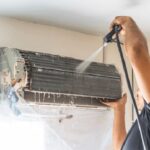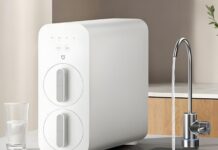As the scorching summer heat sets in, air conditioners become one of the most overworked household appliances, running continuously for extended periods. However, many households experience a common issue where their air conditioner fails to cool the room effectively, despite setting a low temperature, selecting the Cool mode, and turning the fan to the highest setting.
According to distributors and experienced technicians, the primary culprit is often a dirty air filter. Over time, dust and debris accumulate on the filter, obstructing the airflow from the unit to the space that needs cooling.
Moreover, a clogged air filter can increase the power consumption of the air conditioner, resulting in higher electricity costs and louder operation than usual.
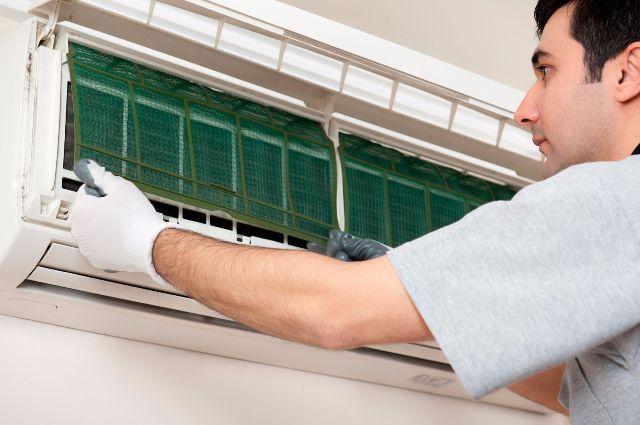
A dirty air filter can significantly reduce the cooling efficiency and overall performance of your air conditioner. (Illustrative image)
Therefore, when your air conditioner seems underperforming or emits unusual noises, the first step is to inspect and clean the air filter. It is recommended to clean or replace the air filter periodically, especially after prolonged use.
Distributors and technicians advise cleaning the air filter every 3 to 4 months for households that use their air conditioners daily. If usage is less frequent, cleaning every 6 months should suffice.
For commercial spaces such as companies, restaurants, factories, and enterprises, more frequent cleaning is necessary—ideally once a month—as the units operate in dustier environments and at higher intensities.
With summer approaching, it is prudent to perform a thorough cleaning of your air conditioner before the peak season to ensure optimal cooling performance.

For households that use their air conditioners daily, it is recommended to clean the air filter every 3 to 4 months. (Illustrative image)
In addition to a dirty air filter, another reason for an underperforming air conditioner could be a refrigerant (gas) leak. Refrigerant is a vital component in the cooling process of air conditioners and other refrigeration systems.
Over time, the refrigerant level may deplete, requiring a recharge by a professional technician. In some cases, refrigerant leaks can occur, leading to a sudden loss of cooling capacity. Therefore, regular maintenance and inspections are crucial to ensure the integrity of the refrigerant lines.
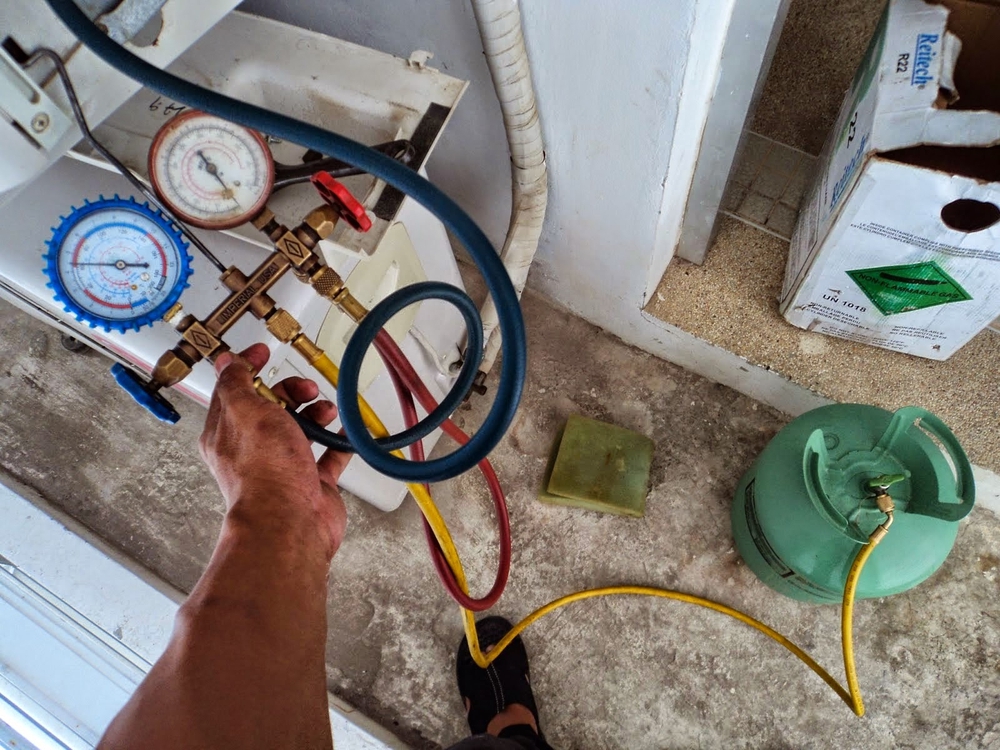
It is important to inspect and maintain the refrigerant lines to prevent leaks and ensure the optimal performance of your air conditioner. (Illustrative image)
If neither of these two main issues is the cause, it is advisable to call a professional technician to inspect your air conditioner, as there could be a problem with internal components such as the compressor, capacitor, control board, or drainage pipe.
Summer is coming; how can we use air conditioning economically?
Another concern for families during the summer is how to use air conditioning economically. In fact, this is not difficult. Just a few simple adjustments can help your family save a significant amount on electricity bills.
Switch from Cool mode to Dry mode
According to technical experts, the Cool mode provides instant cooling, while the Dry mode gradually cools the room, maintaining a comfortable temperature without making it too cold.
Compared to the Cool mode, Dry mode operates at a lower capacity and consumes less electricity since it does not focus on deep cooling. Additionally, using Dry mode helps prevent thermal shock when entering a cooled room.
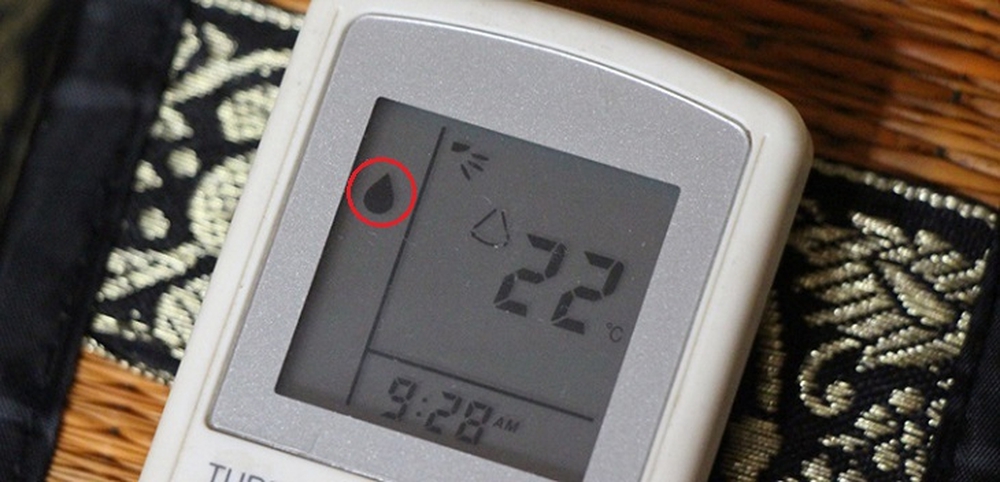
Switching from Cool mode to Dry mode can help save energy when using air conditioning. (Illustrative image)
Utilize the Sleep mode
Get into the habit of setting your air conditioner to Sleep mode at night. This mode gradually increases the temperature by one degree every hour, ensuring you don’t get too cold while maintaining a pleasant room temperature.
Not only does Sleep mode save energy, but it also helps protect your health.
Set a timer to turn off the air conditioner
During use, we sometimes forget to turn off the air conditioner when leaving the room or the house, which wastes a significant amount of electricity. To avoid this, it is best to set a timer to turn off the air conditioner automatically.
You can also use this feature when using the air conditioner at night to control its operating time instead of letting it run all night.
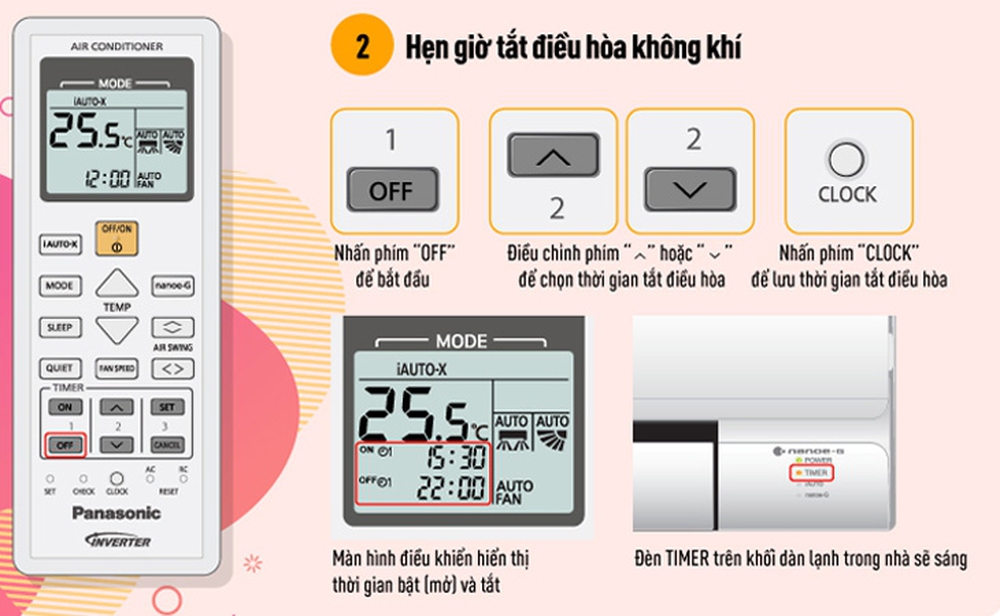
Use the timer function to save energy and control the operating time of your air conditioner. (Image: Dienmayxanh)
Engage the energy-saving mode
Modern air conditioners, especially newer models, often feature an energy-saving mode (Eco). When activated, this mode lowers the room temperature below the set point, after which the compressor stops running to conserve energy.
Meanwhile, the fans automatically turn on and off every 2-3 minutes to maintain the desired temperature. This way, your room remains comfortable without excessive energy consumption.
The Eco mode is also available in other appliances, such as dishwashers and washing machines, to help reduce energy usage.
According to Trí Thức Trẻ


























